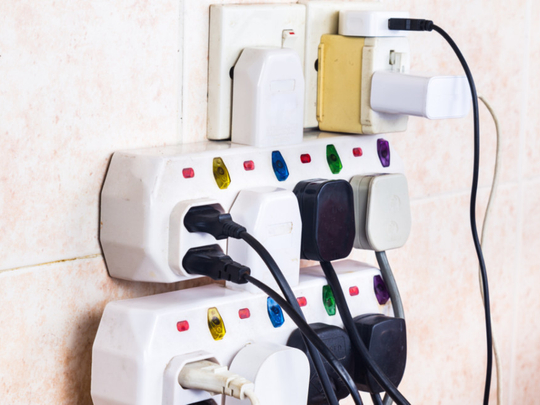
From bodily harm to property damage, the effects of fires can be devastating. The “it won’t happen to me” attitude is what catches most people off guard and by then it is too late to prevent or manage a fire. By exercising good safety habits and adopting simple preventive practices, one can greatly cut down on fire risks. “Always remember that prevention is better than cure,” says Christian G. Beltran, first aid and fire safety instructor at Al Salama, a fire safety training company. “Residents should have some knowledge or training in basic fire safety.”
Vijay Chandran, marketing manager of Dafoos Group of Companies, says that in the unfortunate event of a fire, saving lives and minimising damage to properties is what residents should strive for. But he reiterates that people need to be aware and proactive. “Most of the residential units these days are equipped with automatic fire alarm and firefighting systems which are to be maintained in a healthy condition. Ignoring a fire alarm is suicidal.”
Proper care of electrical equipment and wires
Faulty electrical equipment and wiring are big hazards. “When using electrical equipment ensure that appliances do not have loose or any damaged cord or plugs. And when using extension cords, make sure that you are not running the electrical wires under rugs or heavy furniture. Also, please use standard and quality material,” advises Beltran.
Attaching multiple appliances to power sockets is a common habit, and seldom do people bother to understand the power load of a socket. “Before operating any electrical appliance, ensure that your electric wiring system can safely cater to its energy requirements,” says Chandran. “Faulty wiring and overloading the electric installations can be extremely dangerous. Any electrical work has to be carried out by a qualified and authorised person.”
Cook with care
Kitchens are very prone to fire accidents. From wearing fire resistant clothing to managing cooking temperatures, especially for liquids like oil, simple preventive tips can protect homes from fire. “Wearing a kitchen apron while cooking is ideal and it is important to wear cotton clothes that remain fit to the body,” advises Chandran. “Also, heating oil has to be done with utmost care. Cooking oil should be heated with minimum flame to prevent smoking and the flame should never be allowed to rise above the utensil.”
He also warns against a common mistake most people make in the event of any fire: dousing it with water, which can be especially dangerous in oil-related fires. “Adding water to boiling oil can lead to sudden evaporation of the oil, making vapor concentration sufficient to catch fire; hence it has to be done with extreme caution,” says Chandran. “In the event that cooking oil in a utensil on flame catches fire, water should never be poured into it, as it can lead to a flare up. Cut off oxygen supply to the burning oil by closing it fully and abruptly. A fire blanket is the best means in doing so.”
Cooking gas cylinders should be closed and electric appliances switched off when not in use. Surprisingly, exhaust fans left to run for long hours are also a frequent source of fire incidents.
Fire safety tools
Smoke detectors and fire alarm systems should be checked yearly. In residential units where fire alarm and firefighting systems are not installed, stand-alone, battery-operated fire alarm devices that are available in the market can be used, says Chandran. The fire safety equipment in the house should include fire extinguishers, fire blankets and a first-aid kit.
What to do in case of a fire
According to Beltran, the first thing to do is to sound the fire alarm and then inform other people. “Next inform the Civil Defence by calling 997,” says Beltran. “If it is a small fire and you are trained, attempt to extinguish the fire and try to assist others. If you are not trained in the use of fire extinguishers, close all doors and windows and leave the area.”
The head or at least a member of the family should also know how to operate fire-safety equipment. It is also handy to have different kinds of fire extinguishers, which can make all the difference when extinguishing a fire.
Residents should also be are aware of the evacuation plan or fire exits, especially children and elderly. According to Chandran, “Though pyrophobia, the fear of fire- is inherent, it is important to never panic. Make the best use of each minute patiently with alertness and caution. Evacuate at the earliest while assisting others in doing so.”
Fires can be devastating, but most are accidental and preventable. So be aware and be safe.











